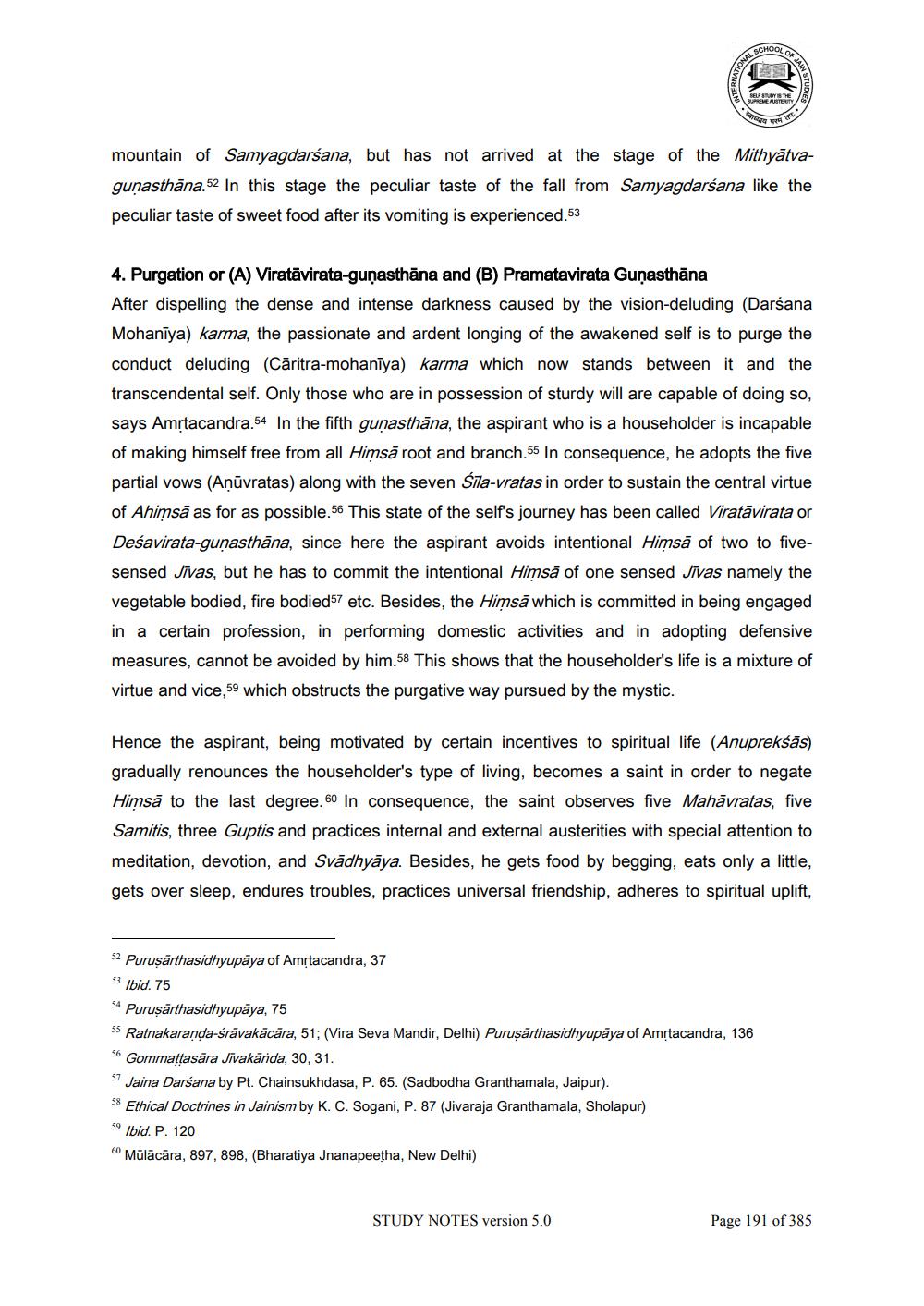________________
mountain of Samyagdarśana, but has not arrived at the stage of the Mithyātvagunasthāna.52 In this stage the peculiar taste of the fall from Samyagdarśana like the peculiar taste of sweet food after its vomiting is experienced.53
4. Purgation or (A) Viratāvirata-gunasthāna and (B) Pramatavirata Guņasthāna After dispelling the dense and intense darkness caused by the vision-deluding (Darsana Mohanīya) karma, the passionate and ardent longing of the awakened self is to purge the conduct deluding (Cāritra-mohanīya) karma which now stands between it and the transcendental self. Only those who are in possession of sturdy will are capable of doing so, says Amrtacandra.54 In the fifth gunasthāna, the aspirant who is a householder is incapable of making himself free from all Himsā root and branch.55 In consequence, he adopts the five partial vows (Anūvratas) along with the seven síla-vratas in order to sustain the central virtue of Ahimsā as for as possible. 56 This state of the self's journey has been called Viratāvirata or Deśavirata-gunasthāna, since here the aspirant avoids intentional Himsā of two to fivesensed Jīvas, but he has to commit the intentional Himsā of one sensed Jīvas namely the vegetable bodied, fire bodied 57 etc. Besides, the Himsā which is committed in being engaged in a certain profession, in performing domestic activities and in adopting defensive measures, cannot be avoided by him.58 This shows that the householder's life is a mixture of virtue and vice,59 which obstructs the purgative way pursued by the mystic.
Hence the aspirant, being motivated by certain incentives to spiritual life (Anuprekśās) gradually renounces the householder's type of living, becomes a saint in order to negate Hiņsā to the last degree.60 in consequence, the saint observes five Mahāvratas, five Samitis, three Guptis and practices internal and external austerities with special attention to meditation, devotion, and Svādhyāya. Besides, he gets food by begging, eats only a little, gets over sleep, endures troubles, practices universal friendship, adheres to spiritual uplift,
$2 Purusarthasidhyupāya of Amrtacandra, 37 53 Ibid. 75 54 Purusarthasidhyupāya, 75 Ratnakaranda-sravakācāra, 51; (Vira Seva Mandir, Delhi) Purusārthasidhyupāya of Amrtacandra, 136
Gommattasära Jivakanda, 30, 31. 57 Jaina Darśana by Pt. Chainsukhdasa, P. 65. (Sadbodha Granthamala, Jaipur). 58 Ethical Doctrines in Jainism by K. C. Sogani, P. 87 (Jivaraja Granthamala, Sholapur) 59 Ibid. P. 120 60 Mülācāra, 897, 898, (Bharatiya Jnanapeetha, New Delhi)
STUDY NOTES version 5.0
Page 191 of 385




